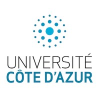decentralized Digital Currencies and Mutable - Sophia Antipolis, France - Université Côte d'Azur
Description
(Semi)Decentralized Digital Currencies and Mutable Smart Contracts for Permissioned Blockchains Distributed Ledgers for the European Area // _:
- Réf
ABG-122694
ADUM-56511
- Sujet de Thèse 11/04/2024
- Université Côte d'Azur
- Lieu de travail
- Sophia Antipolis Cedex
- France
- Intitulé du sujet (Semi)Decentralized Digital Currencies and Mutable Smart Contracts for Permissioned Blockchains Distributed Ledgers for the European Area // _
- Mots clés permissioned blockchains, smart contracts, distributed ledger technology, Semantics of programming languages, Decentralized Finance
Description du sujet:
- The panorama of digital currencies is growing rapidly, as illustrated by the following image (courtesy of Bank for International Settlements, While public blockchains were getting more and more popular (and numerous) and new platforms were proposing their implementation of Smart Contracts, much of the interest in the blockchain space was going towards the use of the blockchain technology for the enterprise world. We saw in the recent years the development of different platforms that focuses on the socalled private (or permissioned) blockchain(s) and digital ledgers. Some of the permissioned blockchains platforms are fork of public blockchain adapted to the enterprise needs (e.g. Quorum) while others have been designed and built from scratch (e.g. Corda, Digital Asset, Hyperledger Fabric, etc.). Almost the totality of private blockchain(s) present their own implementation of
Smart Contact:
for example, DAML [4] supported by Digital Asset, Chaincode [5] in Fabric, Kotlin/Java [6] supported by Corda and many others.
- Between public and private blockchains we are observing a wide variety of different languages with different capabilities and limitations. Both public and private blockchain often lack maturity and a formal semantic as they have been under pressure of the sudden and rapid explosion of Blockchain popularity.
- While the blockchain industry has seen remarkable growth, standardized protocols and formal semantics remain relatively few but are steadily increasing. Notable initiatives, such as the ETSI ISG PDL standards (such as PDL004, PDL011 and PDL018)[12], are leading efforts to establish guidelines for smart contract development and enhance blockchain interoperability. As Europe demonstrates a growing interest in blockchainrelated projects and research, initiatives like Digital Euro[13] and European Digital Identity[14] underscore the importance of accelerating standardization efforts to ensure the seamless integration of blockchain technology into various sectors. Important to note that Digital identity is a critical asset in the digital landscape, yet it poses significant privacy challenges under GDPR regulations.
- Début de la thèse : 01/10/2024
Nature du financement:
Précisions sur le financement:
- Contrat doctoral EDSTIC-UCA ou EUR-DS4H
Présentation établissement et labo d'accueil: - Université Côte d'Azur
Etablissement délivrant le doctorat: - Université Côte d'Azur
Ecole doctorale:
- 84 STIC Sciences et Technologies de l'Information et de la Communication06/05/2024
Plus d'emplois de Université Côte d'Azur
-
Innovation Manager H/F
Nice, France - il y a 3 semaines
-
Directeur administratif/Directrice administrative IUT Nice Côte d'Azur
Provence-Alpes-Côte d'Azur, France - il y a 2 semaines
-
DRVI - Ingénieur/Ingénieure Systèmes d'Information
Nice, France - il y a 2 semaines
-
DP - Ingénieur/Ingénieure Chargé d'exploitation Gestion Technique du Bâtiment (GTB)
Nice, France - il y a 3 semaines
-
Ingénieur ou Ingénieure de formations
Nice, France - il y a 2 semaines
-
EUR LEXSOCIETE
Nice, France - il y a 1 semaine

